In 1974, Mogilevich was sentenced to three years’ imprisonment for his black market activities. This was at the time when criminals in the former Soviet Union started to organize themselves, so when “Seva” was released three years later, he had emerged a boss of a gang now known as the Solomon Mafia. Mogilevich earned his first millions under Gorbachov’s glasnost in the early 1980s, when Soviet Jews, who mass-emigrated to Israel, needed “professional assistance” to get their hard currency and valuables — of course, minus a fat provision for “Seva” — with them across the Iron Curtain.
The Soviet Union’s implosion in the early 1990s led to an immense boost of organized crime. Mogilevich, who by now carried an Israeli passport, settled in Budapest, where he was protected against deportation through a marriage to a Hungariancitizen. Based in the middle of the Carpathian basin, “Seva” and the Solomon Mafia started, according to police sources, to entangle all countries in post-Communist Central Europe in a criminal web. Their alleged main activities were drugs, prostitution, arms, nuclear material, antiques, gold and jewels. The profits that this criminal activity yielded, the police reports, were laundered through a network of legal businesses — including The Dove restaurant in Prague — which all belonged to Mogilevich.
It was his extraordinary capabilities in money laundering that earned Mogilevich his nickname Don the Brain. There are even strong indications that he personally masterminded the Bank of New York scandal, which in 1999 linked the then Yeltsin regime to extensive money laundering. FBI’s forensic accountants started investigating the case, but no charges were ever raised against Mogilevich. This is Don the Brain’s comment in the interview with the BBC in late 1999:
“If there have been committed crimes and the police suspect that 1 have committed them, I can only say one thing. Please show your evidence. If I really had been involved in all those criminal acts and the police had disposed evidence of this, they certainly would have put charges against me. But they haven’t!”
So, officially, Semyon Yudkovich Mogilevich is only an extremely successful businessman trading in wheat, ceramics and shoes. To most Czechs, however, he remains the very icon of a Russian godfather and a kingpin in organized crime in Central Europe.
According to a Czech police spokesman, foreignmafiosi booked, in 2001, a turnover approximating 418 billion korunas , which corresponds to 20 percent of the whole country’s GDP. Even if this figure seems wildly exaggerated there’s no reason to doubt that organized criminals — with or without Semyon Yudkovich Mogilevich’s brains — are doing quite well in the Czech Republic.
The Czech nation has from time immemorial been divided into three historic regions: Bohemia, Moravia and Silesia. As in every other country on this planet, the Czech Republic has also witnessed a certain competition among its regions. A neutral observer may, however, quite often have the impression that the Vysočina , the highlands that divide Bohemia in the west from Moravia in the east, is a kind of buffer zone between two implacable rivals.
To be fair, the different character of the two regions is really eye-catching. Bohemia, occupying an area twice as large as Moravia and with almost twice as many inhabitants, is highly industrialized, deeply secularised (see: Religion) and completely dominated by Prague, the country’s unrivalled economic, political and cultural centre. Moravia is mainly engaged in agriculture or mining (see: Ostrava), the Catholic Church with its traditionalistic valuesrepresents a spiritual cornerstone, and the regional capital Brno is both a nice and pretty city, although its ultra-provincial character is impossible to ignore.
If this makes you think that the average inhabitant of Bohemia can’t stand the mug of the average Moravian and vice versa, you are probably too harsh (such a strong repulsion is mostly reserved for foreigners). Yet on both sides of the Vysočina , people regard it as a matter of honour to pester and insult the clowns on the other side of the highlands.
According to the Moravian stereotype, the classic cajzl (originally denoting a person from Prague, but today it applies more or less to anybody from Bohemia) is an arrogant, overpaid, beer-drinking fellow who goes to his cottage twice a month (see: Fridays) in Moravia to fix his car and bask in the sun. He knows everything better than the local boors, and his treatment of the Czech languageis despicable. Logically, if you park a Prague-registered car somewhere in Brno, you can bet your boots that local police will give you a fat fine for some completely surrealistic offence.
The average Bohemian’s perception of the Moravians isn’t much more flattering. True, thanks to their rural roots, many of them are quite jolly and hearty (not least in combination with the locally produced wine), and lots of Moravians still have this funny physical resemblance to the Mongolian Avars that raided the area in the Middle Ages. But their strong religiosity is outdated and rustic, their dialect is ridiculous, and their inferiority complex about Bohemia is as huge as it is justified.
In complete accordance with this view, Czech state Television (based in Prague, of course) has practically only two ways of presenting life in the eastern part of the country: either you see thousands of pious Moravian Catholics attending mass, or a bunch of drunk chaps, who are dressed in folklore costumes and dance around in the village streets during some festival while roaring “I’m not Czech, I’m Moravian!”
Actually, there are also sober Moravians who seriously struggle to put an end to Bohemia’s dominance and Pragocentricism . The Moravian National Party was established in the early 1990s, and it is working to transfer some of the nation’s political decision-making to Brno. So far, only the Constitutional Court and the Anti Monopoly Office have left Bohemia for Moravia, but the MNP’s long-term policy goal is to reorganize the Czech Republic into a federation, like Austria and Germany, where the government in Prague will only decide major issues such as foreignand defence policy.
The Czechoslovak separation (see: Slovaks) was a hard blow to the Moravian nationalist movement. Many ardent supporters discovered that their country had suddenly shrunk almost in the half and could hardly be split into another two parts. Yet their distinctive cultural character is still a touchy matter for most Moravians. In the national census in 2001, more than 1.3 million of the Czech Republic’s citizens took great care to declare their nationality to be Moravian, not Czech.
This delicate situation may cause a foreigner some unexpected problems. While the adjective “Czech” in most European languages usually refers to the entire Czech Republic, český in Czech refers primarily to Bohemia ( Čechy ) and secondarily to the whole country.
So, if you are speaking about the famous “Czech composer” Leoš Janáček in Prague, you’ll probably be tolerated. Try the same in the composer’s native Brno, and you’ll be killed on the spot. Or imagine you are sitting with some locals in a wine cellar in charming Valtice in Southern Moravia and then foolishly spoil everything by saying something like “this Czech wine is surprisingly tasteful”.
What you actually want to say is that “Moravian wine” is terrific!
O nás, bez nás — about us (but) without us. These words of utter despair and powerlessness were spoken for the first time in September 1938, but have later been carved into the brains of more or less every single Czech (see: National Identity). They relate to an event most people in this country consider the biggest tragedy in their modern history — the Munich Agreement — and it’s no exaggeration to say that it still represents a national trauma for the Czechs.
Читать дальше
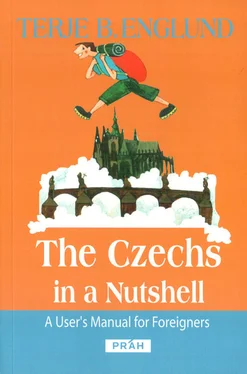

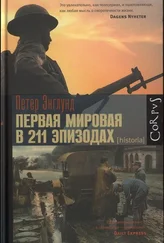
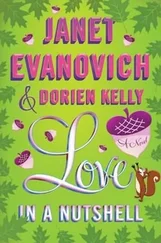
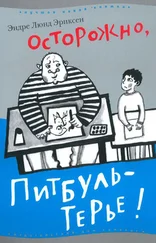
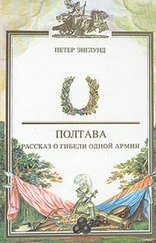


![Theresa Cheung - The Dream Dictionary from A to Z [Revised edition] - The Ultimate A–Z to Interpret the Secrets of Your Dreams](/books/692092/theresa-cheung-the-dream-dictionary-from-a-to-z-r-thumb.webp)



